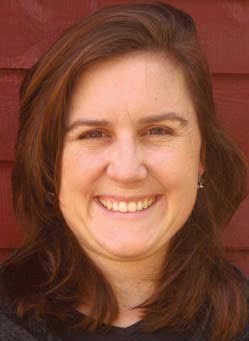Among the many priorities crowding school budgets, environmental education often gets short shrift. Many educators see the value of bringing more nature into the classroom, but the reality of other costs – from textbooks to health insurance – leaves very little money for what is broadly defined as “enrichment” spending.
So how do schools fund demonstration gardens, live animal encounters, and field trips to beaver ponds? Often, individual educators and community members dedicate their personal time: they apply for grants, sell cookies for cents on the dollar, or seek in-kind donations. In the end, all too often, they dig into their own pockets.
This year, the Center for Northern Woodlands Education is testing out a new way for schools to raise funds for environmental education, with much better margins than your standard bake-sale brownie. In January, we launched Subscriptions for Schools in Maine and Massachusetts. The concept is simple: Northern Woodlands will support local fundraising campaigns for up to 50 schools in each state, permitting PTOs and other school volunteer groups to sell subscriptions to the magazine for $21.50 and keep $10 per sale.
Northern Woodlands couldn’t offer this program without the support of donors, both individuals and nonprofit organizations. In the Bay State, the Massachusetts Forest Alliance is cosponsoring the program. Founded in 2012, the MFA was formed when several groups concerned with forest stewardship joined together. It represents forest landowners and industry professionals, provides continuing education and public outreach, and advocates for a strong, sustainable forest economy.
Another key participant in the Massachusetts program is the Hitchcock Center for the Environment. This highly respected nonprofit serves over 6,000 children, youth, and adults each year through educational programs that foster a greater understanding of the local environment. The Hitchcock Center will be using Subscriptions for Schools to raise money for the children of low-income families to attend its summer camp.
In Maine, we recently had the opportunity to share information about the program at the annual meeting for the Small Woodland Owners Association of Maine. Incorporated in 1975, SWOAM has an impressive history of promoting forest stewardship and, through its land trust, protecting forestland while also promoting multiple-use management.
So, Maine and Massachusetts readers, please check out these organizations, and help spread the word about Subscriptions for Schools. More information is available by calling our office at (802) 439-6292, or by emailing us.
One other school-related note: on page 21, you’ll find an essay by high school student Kia Amirkiaee, focusing on the value of working forests in Vermont. This is the winning essay in a contest supported by the French Foundation, Vermont Woodlands Association, and Vermont Department of Forests, Parks and Recreation. Congratulations, Kia!


